Osamu Kitajima interview
Osamu Kitajima was born in Chigasaki, Japan on February 3rd 1949 and studied classical guitar and piano already in his childhood days. Later on in the 1960s, when Beat and Rock music became the hot stuff in the popular music circuit, he joined his cousin’s band “The Launchers” with his brother, before graduating from university. Osamu’s cousin, Yūzō Kayama, is a famous Japanese film actor and musician. In 1971, when Osamu was already a successful composer of TV advertising jingles, he moved to England for a year and developed an obsession for British Rock music, especially in the Psychedelic field. The Beatles, The Bee Gees, Jimi Hendrix, Deep Purple and The Zombies became his major influences and inspired him to start a solo career under the name “Justin Heathcliff”, which he adopted for it’s typical English sound. His 1971 eponymous album was a typical Pop Psyche effort for its time, but not long after he returned home to Japan, Osamu abandoned the English sounding name and further on merged Western Progressive and Electronic music with Japanese Folk sounds.
At what age did you begin playing music and what were the first instruments that you played?
My first instrument was a piano. I was a late starter. I started taking a piano lessons when I was 14 and finished all the Music Score Beyer, Hannon, and Carl Czerny Finger Exercises in six months then quit the piano lessons and started learning a classical guitar by myself, and shortly afterward I fell in love with a sound of the electric guitar as soon as I heard the Ventures that led me into forming my own band.
What were your first musical involvements?
I got a significant musical influence from the environment where I was born. I am so-called a baby boomer. I was born right after World War II, and the place where I was born was the US military base called Camp Chigasaki in Kanagawa prefecture, Japan. My parents were working at their sergeant club that is soldiers relaxing and healing place where they can drink and
dance after their duty. The sergeant club was actually where we lived; in other words, it was my house. So, I grew up listening to American pop and swing music all the time. I still remember soldiers dancing to the song by Doris Day “Sentimental Journey” and I was deeply into that kind of American pop music. Even after we moved to Tokyo when I was 3 years old, I was still listening to American pop on The Far East Network of American military radio. And then I was able to sing all American top 40 songs by the time I got to the age of 10. And I formed my own band “The Vultures” when I was 15. We were playing music like The Ventures or The Shadows and I’ve written some original songs for the band.
Tell us about your cousin, Yūzō Kayama, who was popular musician and film star. You joined his band The Launchers for awhile. You were inspired by surf music in the style of The Ventures.
Yuzo is one of my cousins, and he was the most powerful and influential musician of the ’60s in Japan. He was the first artist who started writing and performing original music instead of singing songs written by professional songwriters. He definitely made a history of Japanese Rock and Pop. He was the one who made the Ventures so famous in Japan. We the Launchers did the special TV show with the Ventures on the primary channel when the Ventures came to Japan. I still remember the time when we did rehearsals every day for about a week at the hotel where the Ventures were staying. Nokie Edwards taught me all kinds of hot guitar licks and techniques, and I was only 16 years old.
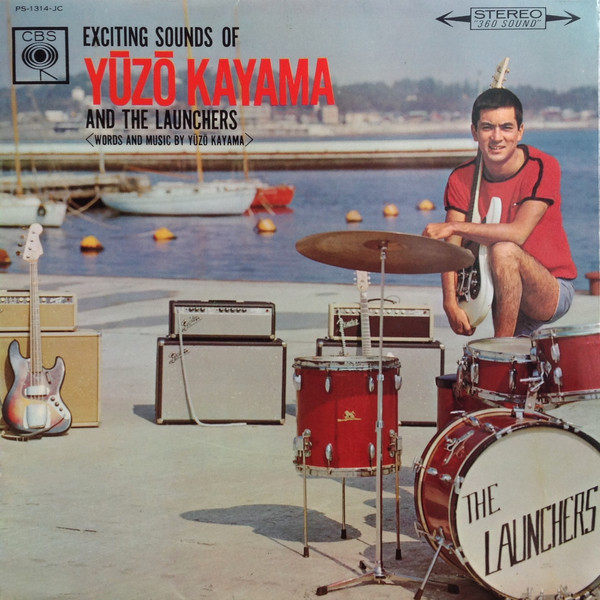
How do you remember The Launchers days?
There were two different eras of the Launchers history. The first one was defined as a backing up era for the first few years, and we were playing mostly Yuzo’s original songs and some Ventures music. The second one was the era after we became independent as the Launchers without Yuzo. The very first song “Mafuyu No Kaerimichi” written by myself after we left Yuzo was a smash hit and became so popular, even nowadays it is one of the most popular songs among Karaoke lovers in Japan. Even after we left Yuzo, we kept performing with Yuzo whenever he wanted us to play for him. It was like a relationship between Cliff Richard and The Shadows in England. Anyway, I have tons of great memories of the Launchers days for sure, and I really appreciate Yuzo for letting me learn those precious and useful things during that period.
How did you get involved in TV and advertising industry?
After the success of the Launchers I became widely known as a composer to the music industry in Japan, and I started getting various kind of job offers and opportunities like writing jingles for those major companies such as Toyota, Panasonic, Mitsubishi, and just to name a few.
You moved to UK for a year in 1971. What artists in particular inspired you to start your own career?
The Beatles, The Bee Gees, Free, Jimi Hendrix, The Zombies, etc.
“I was able to watch the King Crimson’s recording coincidentally.”
After coming back you recorded Justin Heathcliff. It was released on Atlantic Japan. What’s the story behind recording it? Who was the producer? Did you have any guest musicians? How many copies were released?
Back then, I was so impressed with the quality of the recording by English artists. So, in 1969 I went to London and visited one of the most popular recording studios at that time called Morgan Studio, and luckily I was able to watch the King Crimson’s recording coincidentally. During and after their session, I studied their equipment in the studio and how to use them, including microphone setups, equalizers, limiters, compressors, etc. I forgot his name, but their engineer was very friendly and taught me the secrets of English recording techniques. My empty notebook was filled with that information and sketches, and then after I went back to Tokyo I started experimenting what I learned in England with my engineer at Toshiba/EMI recording studio in Tameike, Tokyo. And the result was the album, Justin Heathcliff. The only guest musician was my brother Akira and he played drums on the few tracks. I also produced the whole album myself with a little help from my engineer. Sorry, I have no idea how many copies they pressed for the release.
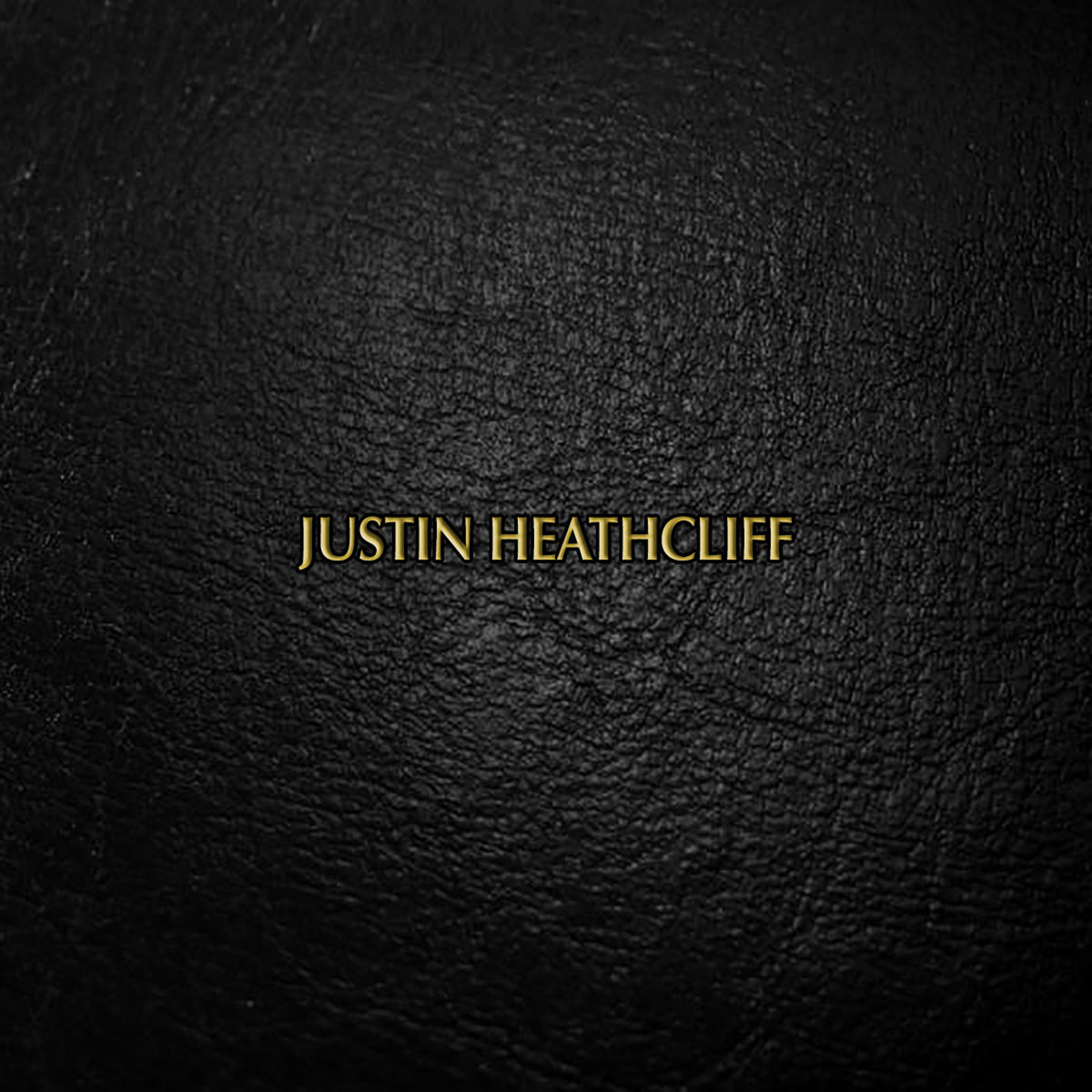
How did you decide to use the name ‘Justin Heathcliff’?
Simply, I just wanted to do it anonymously. Because I did not want to give the assumption to the Japanese audience that it was done by a Japanese artist, and one of my close friends Yuki from Warner/Pioneer Rec. came up with the British sounding name Justin Heathcliff.
It reminds me on Kevin Ayers and a few other psychedelic pop gems from UK.
Is that right? You are the first one who told me that.
How did your collaboration with Paul Rogers, Barry Gibb, and Al Kooper came about?
I didn’t do any collaboration with them. I used to hang around with Paul and doing sessions at his place in the suburbs of London. Speaking of other well-known musicians that I met in England, I could say I was just lucky to see them personally. I’ve met Barry Gibb, Al Kooper, King Crimson, Peter Noon, Tin Tin, Badfinger (The Iveys), and so on.
Your next step was to get in touch with Fumio Miyashita (Far East Family Band and Far Out) and together you worked on Shinchugoko. What are some of the strongest memories from recording it?
I’ve met Fumio through one of the producers from Warner/Pioneer and started hanging around each other here and there. One day, I visited the recording studio where Fumio was working on their album titled Nihonjin. I gave them all kinds of exciting ideas and suggestions, and they loved them. Eventually, we became close friends, and we got an opportunity from Warner/Pioneer to make an album together which became Shinchugoku. The strongest memory about the recording is a real live recording without any clicks except some overdubs. I enjoyed playing acoustic and electric guitars and a grand piano with Kei Ishikawa (Bass), Manami Arai (Drums), and Eiichi Sayu (E.Guitar). They were such great musicians!
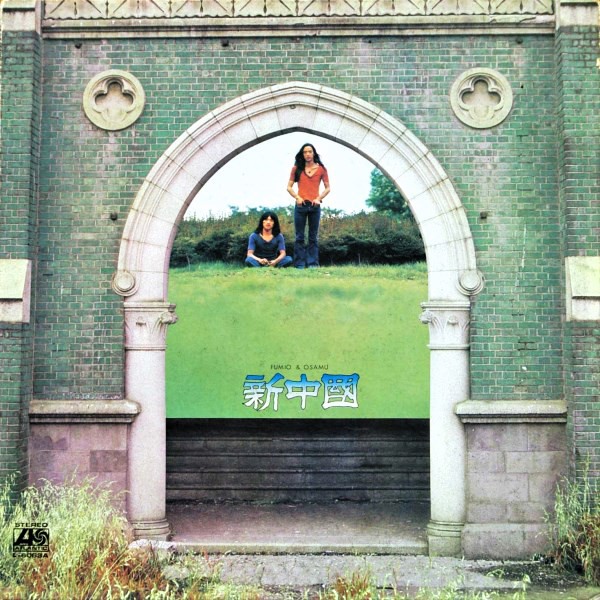
At the time you were also studying Japanese traditional music and worked with Kisaku Katada and Reibo Aoki. Was this the turning point of your career? It must had influenced you to a certain degree to create such a unique sounding albums later on?
It was definitely the turning point of my career. Solely, I fell in love with Japanese traditional music and instruments. Once again, I was so lucky to be able to see those maestros through my Biwa teacher Masako Hirayama. I’ve learned a lot from taking lessons from Hirayama not only technique but also the depth of Japanese spirit. Musically I had a big influence from Kisaku Katada, Tadao Sawai, Reibo Aoki, and so on.
One of the most praised albums is Benzaiten. Where did you record it?
I recorded the whole album at Jean-Jean Studio in Shibuya, Tokyo except the short version of the song Benzaiten recorded in Los Angeles. Here is an interesting behind story of how we started this recording. The owner of Jean-Jean Studio Takashima asked me to produce an album for one of his female singers, and then I told him there was one specific condition I might accept an offer. At that time in Japan, nobody had 16 tracks recorder like the Beatles were using, so I asked him to see if he could buy the 16 tracks recorder from Switzerland to do the project, and his answer was “Yes.” And later I ended up recording my own album Benzaiten at his studio.
“I get in the zone, reaching a state of losing yourself to find yourself where I become one with nature or universe…”
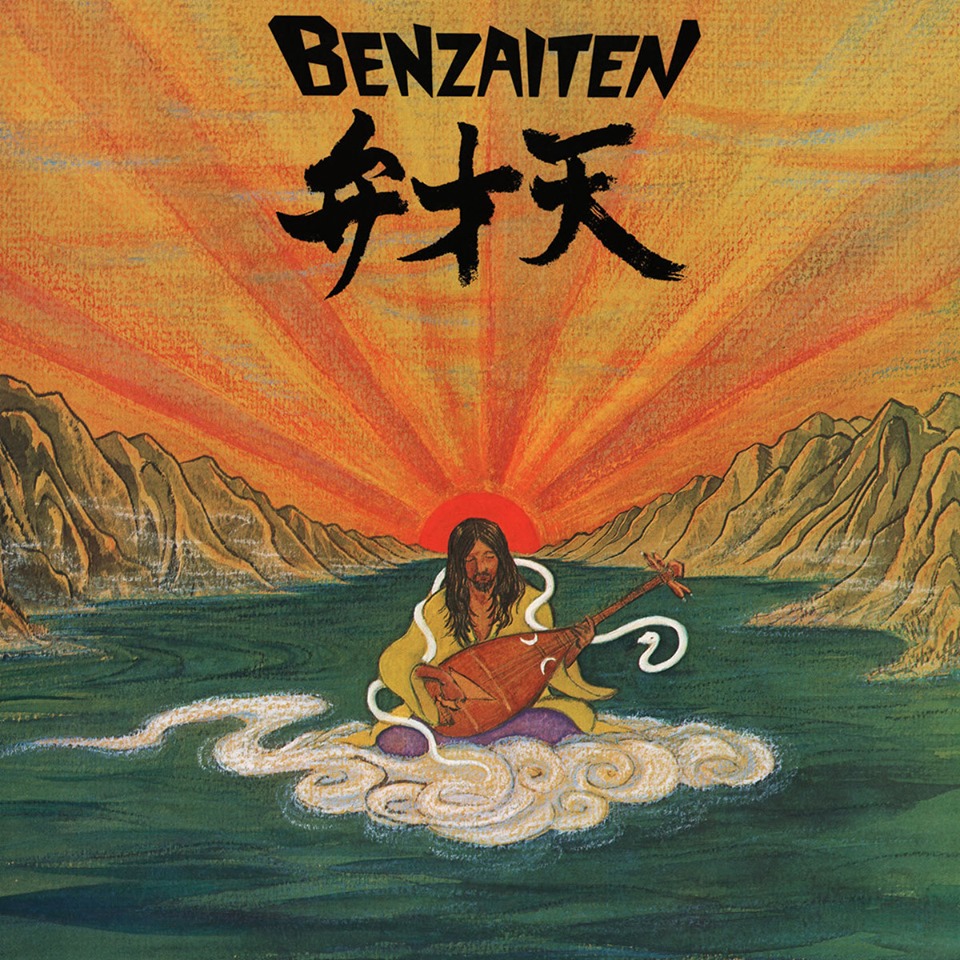
It’s an incredible fusion of East and West traditions. Was there a certain concept behind it?
No concept behind it at all. It just comes from my lifestyle how I grew up and experience. Whenever I write music for myself, there is no intention what so ever. I do not think about anything. It’s almost like a traditional Buddhist meditation. I get in the zone, reaching a state of losing yourself to find yourself where I become one with nature or universe, then a true blessing comes to me. I would say my music is a special gift from heaven.
The album also featured Haruomi Hosono. How was it to work with him on Benzaiten?
I’ve met him through my engineer, and he was one of the best bass players and ahead of others in Japan. In fact, he told me that he was a big fan of the Launchers when I met him the first time at the studio. Sure, he did a great job on the album Benzaiten.
Please share your recollections of the sessions. What were the influences and inspirations for the songs recorded?
There are too many recollections of the recordings in a long history of my career as a musician. Each album has its own recollection, and there is not enough time and space to answer this question. I have all kinds of good memories on each album and project.
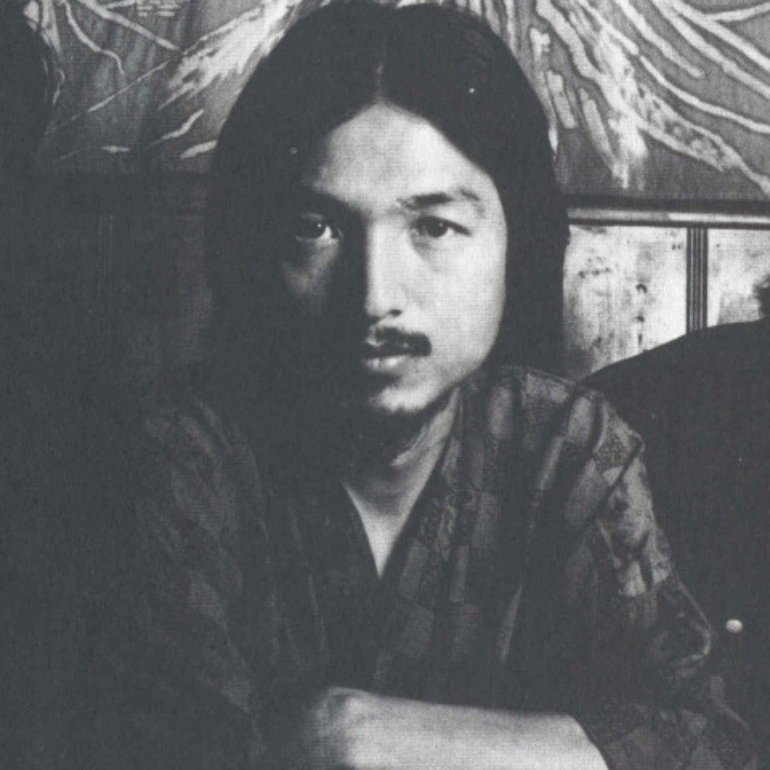
How pleased were you with the sound of the album? What, if anything, would you like to have been different from the finished product?
I was pretty much satisfied with the sound of each album when I made it, but if you let me say, I would re-mix some of my previous albums when I can. Possibly Osamu, Masterless Samurai and Dragon King.
Your next release Osamu (1977) sounds differently.
Well, I guess because it was recorded in the US and a live performance recording with the band, and also produced by the American producer Hal Yoergler. In fact, I’ve learned a lot from this session.
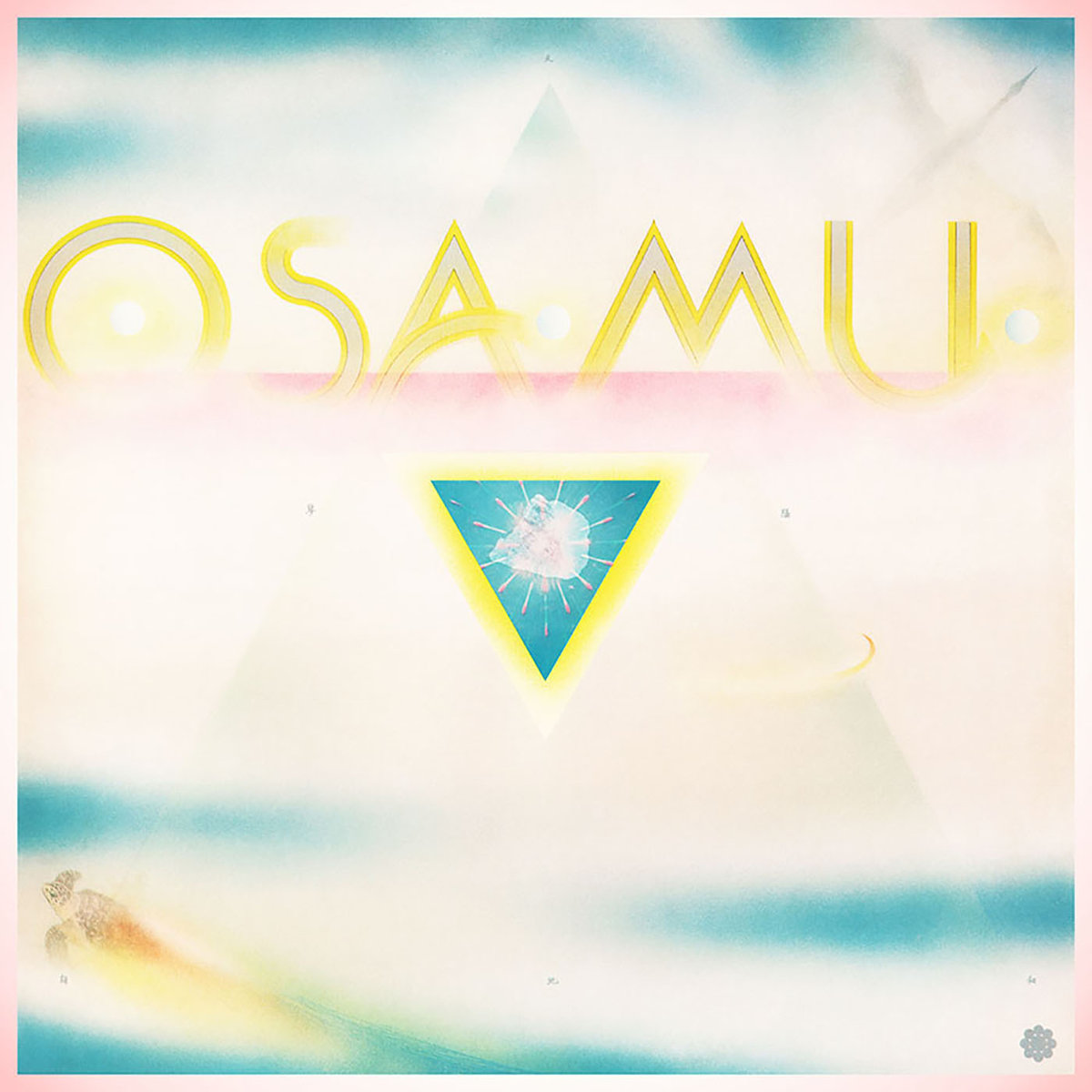
How would you describe Masterless Samurai (1980) and Dragon King (1981) albums in a few words?
Wow! That’s a tough question. Although I was making the music that I came up without any intention, they sound like what people call fusion music. Whatever you call it, I enjoyed creating the music with great musicians such as Victor Feldman, Abe Laboriel, Stix Hooper, Russell Kunkel, Harvey Mason, Bunny Brunel, and John Klemmer, etc.
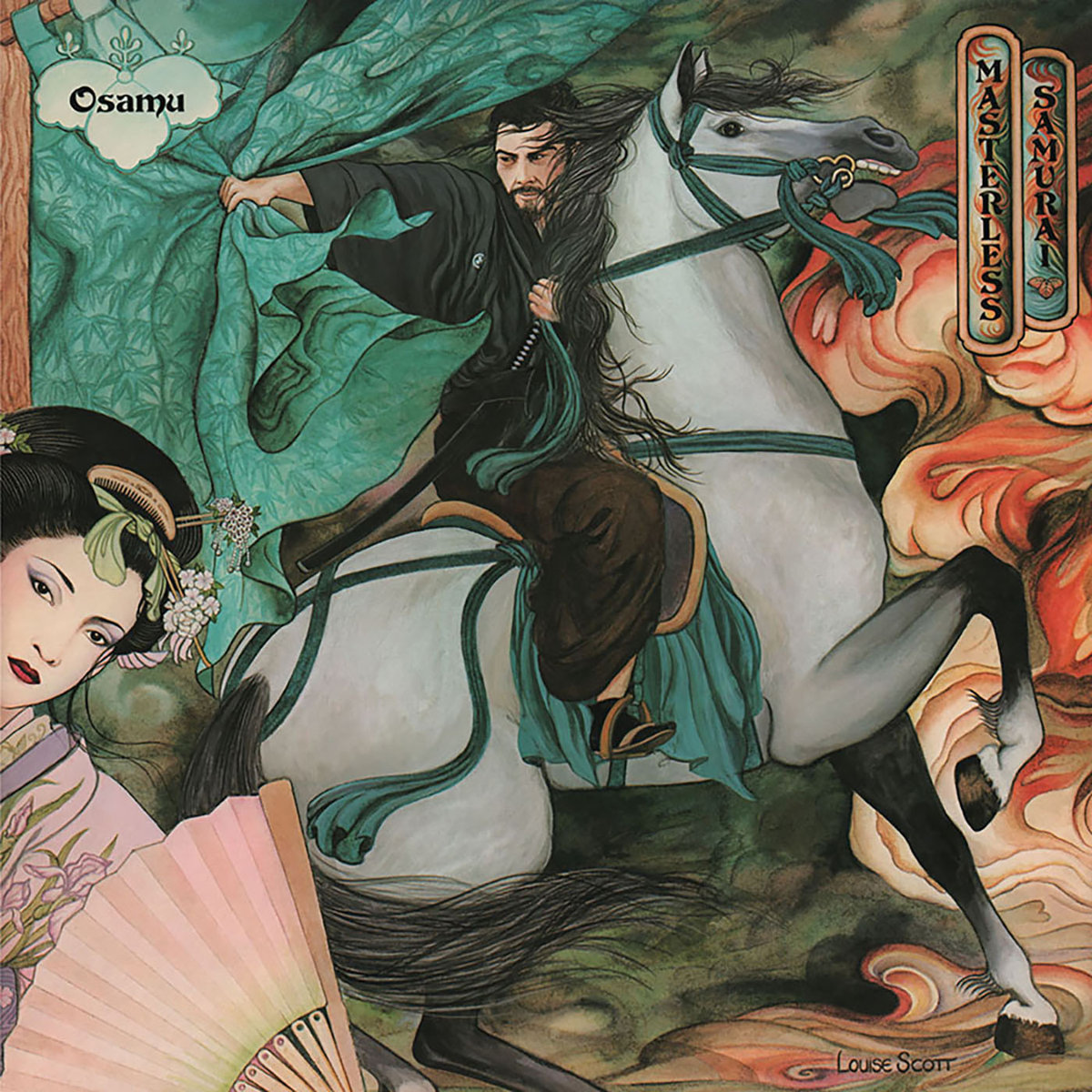
“I always love and enjoy writing music for any kind of visual arts.”
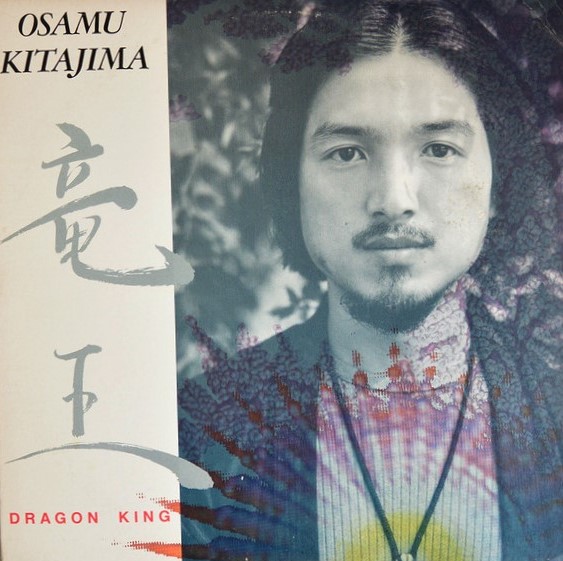
In the 1980s you made a contract with CBS and released countless of solo albums and worked for film industry in Hollywood. You were also working as a producer.
In 1985, I received a phone call from Christine Reed, Vice President A&R, CBS Masterworks out of the blue. She came to LA from NY for Grammy’s and called me while she was here. “Can I come over to your place? ….. possibly today? if it works out for you,” she said. “Sure, why not?” I replied. Then she showed up at my house later in the day. After the greetings, she said, “I listened to your album The Source on the radio and loved it so much. Are you interested in making three albums deal with us?” That’s how it went so quickly.
Yes, I’ve worked on various motion pictures and documentary films during those periods. I always love and enjoy writing music for any kind of visual arts. When I look at the scenes, artworks or pictures, I start hearing something goes along with it. It happens so naturally. I love producing, creating visuals and music.
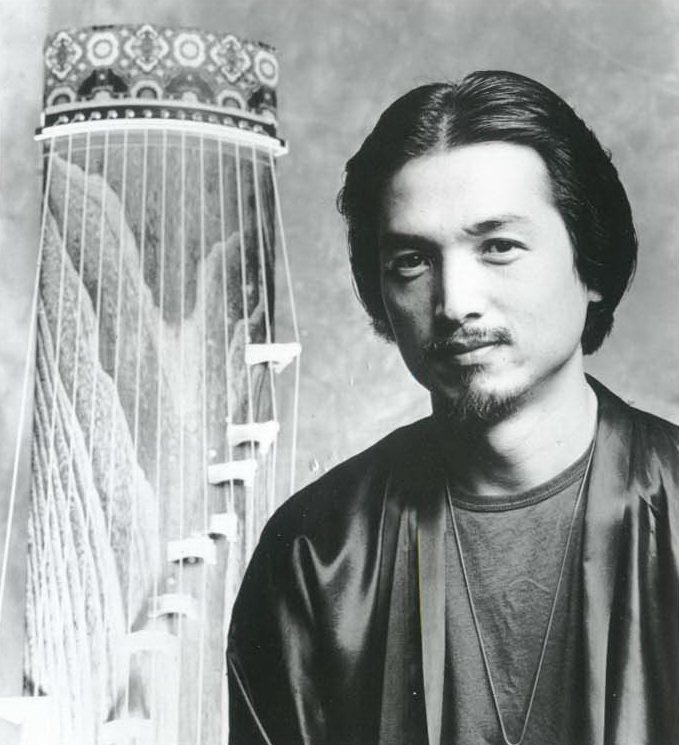
In 2000 you founded East Quest Records. What can you tell me about the label?
Basically, it’s just a small label online. I produce and release the music I like. It’s a one-man record label. No pressure, no politics, and no restrictions at all. All the music on the label is either written or produced by myself. I enjoy having my own label online and selling music through Amazon. It’s nothing special, but most special to me.
You also performed with London Symphony Orchestra for Joe Curiale’ s album Music of Life and was nominated for Grammy Awards. Looking back, what are some highlights in your music career?
Joe is one of my best friends, and he is a great composer-arranger and the master at orchestration. I’ve known him for 40 years, and we’ve done a lot of projects together. One of his albums The Music of Life is a masterpiece.
You have a doctorate in music therapy and you developed natural healing technique called “Musicolor Therapy”. It utilizes sound and color. Would you like to explain the whole concept behind it?
There is not enough space here to explain what it is, but I will try it here.
The primal concept of Musicolor Therapy is based on the frequencies and the wavelengths of light and sound waves traveling through the universe. It has been found to be effective for a wide range of disorders by both Japanese and American honorary and distinguished PhDs. The image and the sound of Musicolor stimulate hypothalamus in our brain through our eyes and ears, leading the autonomic nervous system to be balanced; consequently, it helps to maintain our health by boosting the self-healing capacities of your body and mind. The concept of Musicolor goes for beyond what is currently available as healing music that simply aims to help in ridding stress or to induce relaxation. By comparison, what I have succeeded in doing is to create this new genre called Musicolor Therapy that utilizes sound and color healing techniques to target any individual disorders. It can be thought of as a kind of healing aid in the same way as vitamins, supplements and herbs are.
What currently occupies your life? Any future projects we should expect?
I am working on the new project creating Musicolor Blu-Ray Disc for happiness and enlightenment. I’m going to immerse myself into this project for the next three months. You will see divine and pleasing footage along with sacred and soothing music throughout this Blu-Ray Disc. It is supposed to be released in Japan toward the end of this year or next spring.
Oh, by the way, this is what I did lately. You see me here and there on it. Bear is one of my close friends and we have worked together on various films and Playstation game music.
Everland Music is reissuing your early albums. Are you excited about it?
Yes! Why not?
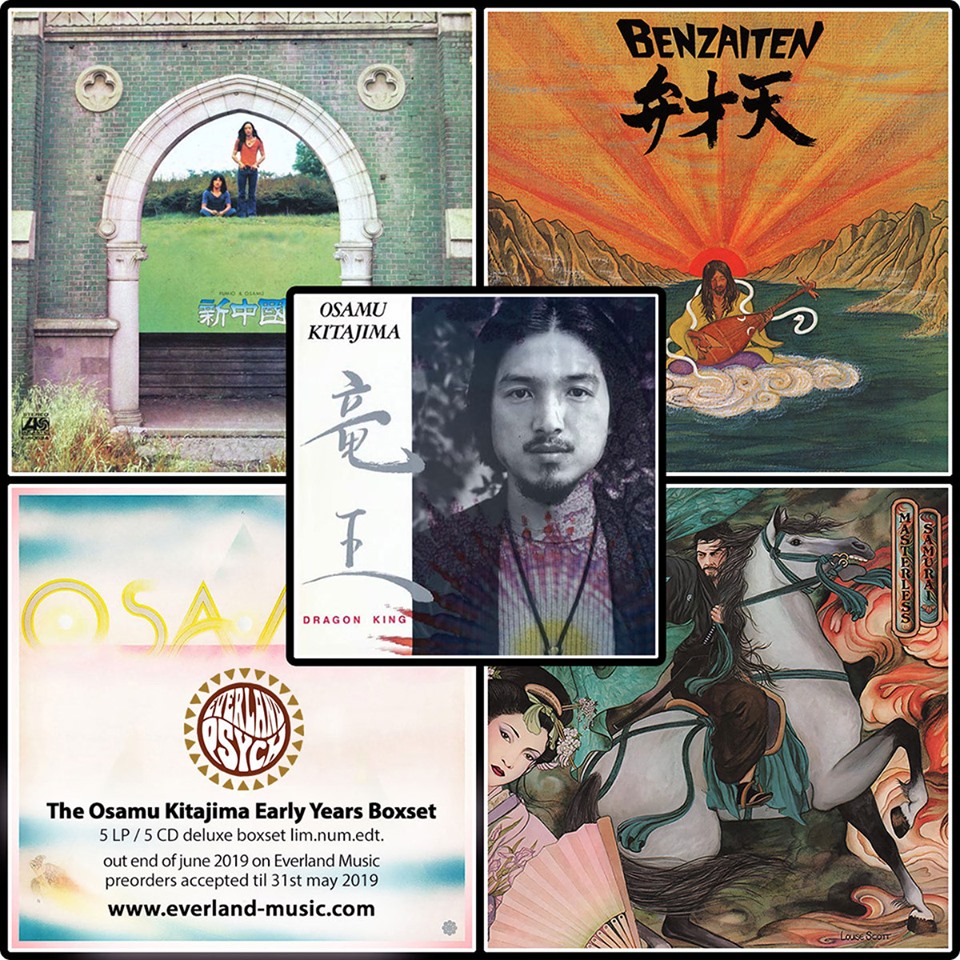
Let’s end this interview with some of your favourite albums. Have you found something new lately you would like to recommend to our readers?
A couple of artists I found lately and liked are as follows. They are from South Korea.
1. Jannabi
2. Damsonegongbang
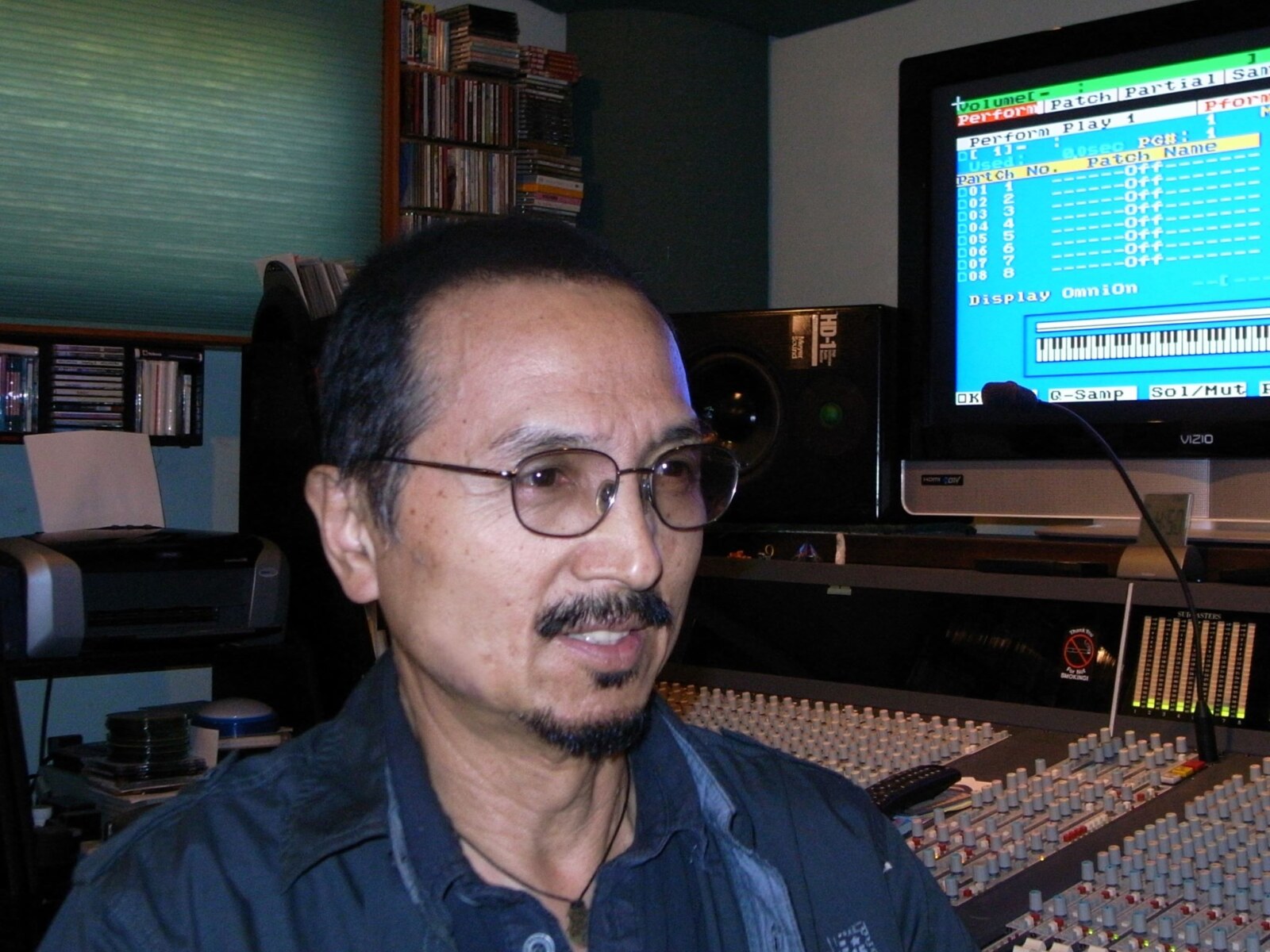
Thank you for taking your time. Last word is yours.
I’m the one who should say thank you for giving me this opportunity. Last of all, I’d like to say something interesting and important.
I’ve been deeply into Korean movies, drama, and music lately. I really think Korean actors, actresses, directors, producers, scriptwriters, musicians, and singers are far more better than Japanese.
Actually, I’ve produced three songs for a female singer from Korea recently and she is an unbelievably great singer. All the crews in the studio were totally amazed at how good she was. I can’t say what her name is yet, but I’m sure you will hear her in the market sooner or later.
– Klemen Breznikar

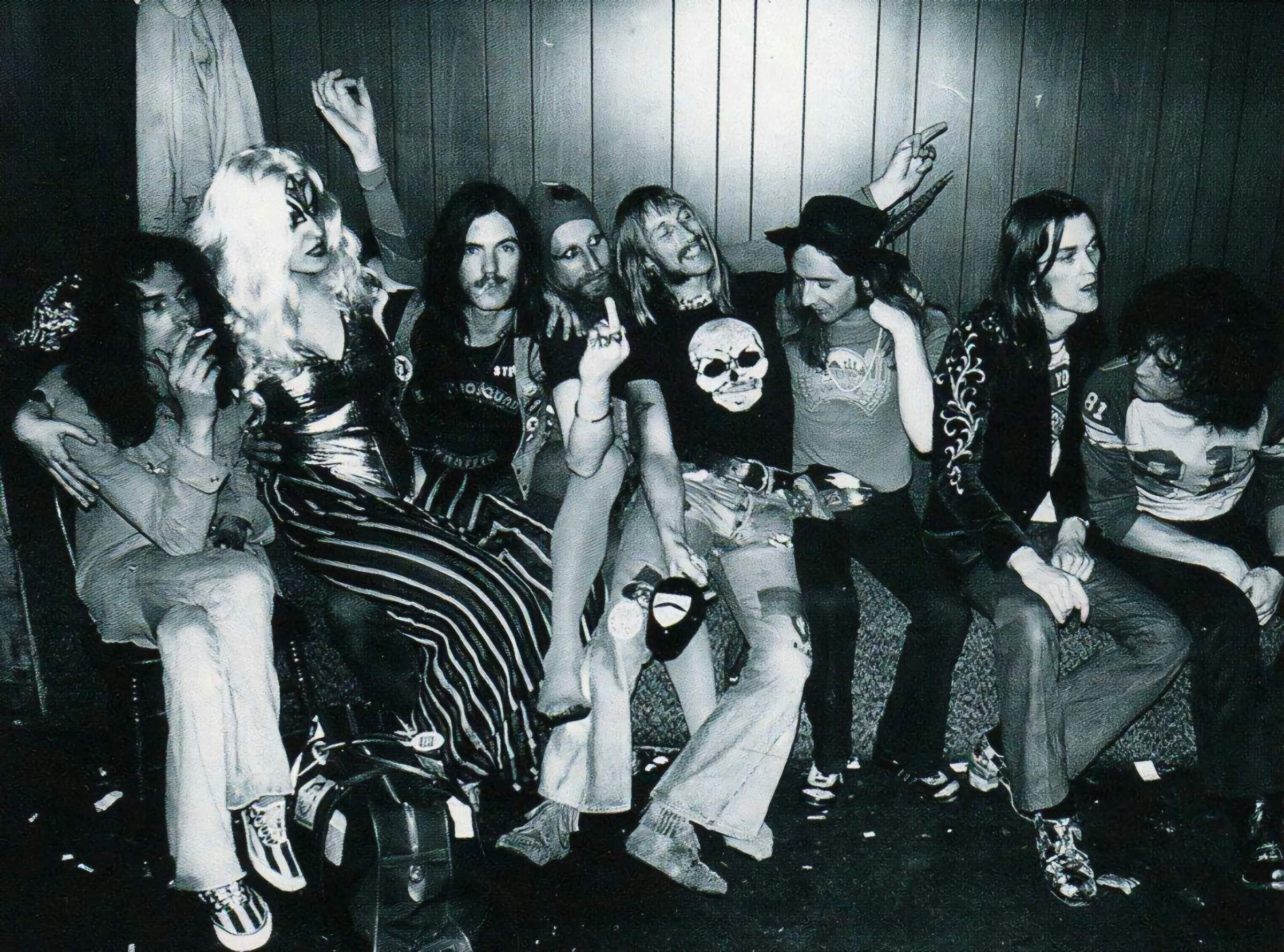
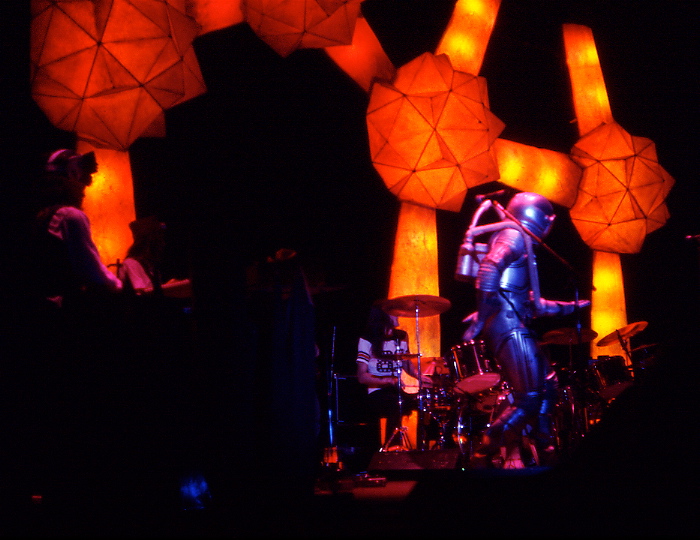
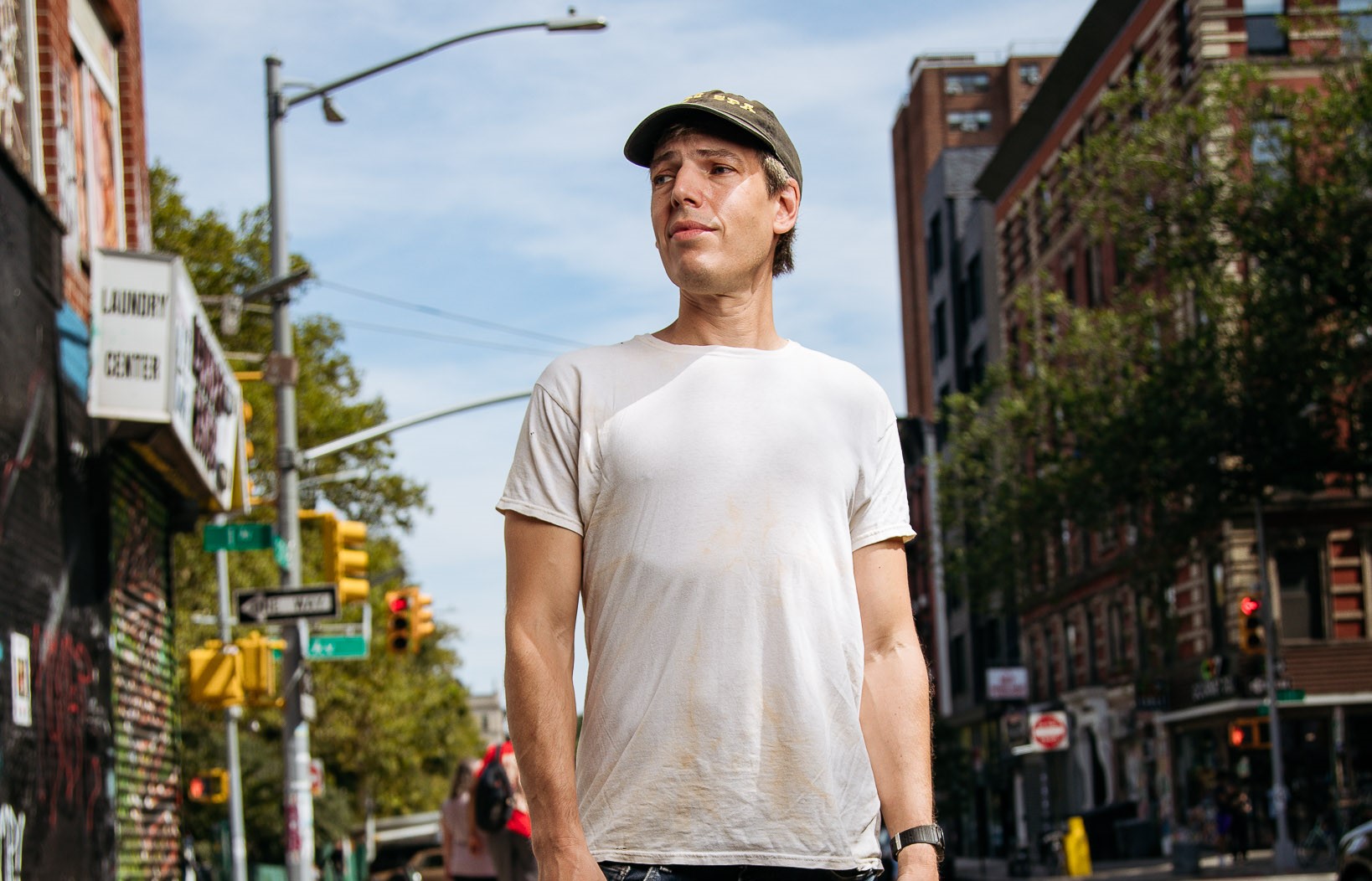
What a great read…very interesting guy.
good interview, very informative
Thank you, great interview. Very happy Dr Kitajima’s early catalog is reissued. Waiting for my box set now.